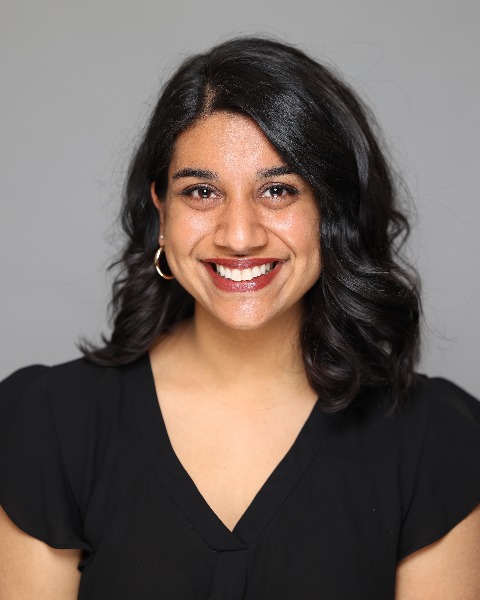Government Evaluation
Weaving the past into the present: Mapping staff stories to strategic planning efforts in Oregon
-

Nandini Deo, MPH
Equity Liasion
Oregon Health Authority
San Diego, California, United States
Presenter(s)
Location: White River Ballroom A
Abstract Information: Community storytelling is only as effective as our ability to listen and apply what we’re hearing. The best way to do this is to recruit and retain staff with the very lived experience that community shares with us. Oregon Health Authority (OHA)’s Equity Office has modeled this structure through the COVID response and is now applying these same values to an intra-office and cross agency evaluation. During this roundtable, we will reflect on the power of bidirectional storytelling, honoring the wisdom of lived experience, and upholding equity and humanness within governmental public health response. From 2020-2022, staff at OHA were pulled into acute COVID-19 response in the COVID Response and Recovery Unit (CRRU). With Oregon’s focus on equity during COVID-19, bodies of work naturally began to form around equity-related efforts. This included culturally-specific community workgroups hosted by OHA staff, community listening sessions, and community-driven vaccine events. In June of 2022, this body of work was moved to a newly established Equity Office within OHA’s Public Health Division. As the work of staff shifts primary to community-centered equity work, Equity Office leadership have undertaken strategic planning efforts for the future of the office. The Equity Office Evaluation project was launched in December 2022 to provide direction for strategic planning. In our in-depth discussion, we will share the full context and impetus for beginning an evaluation of Equity Office’s work, the development of strategy and framework for this evaluation, the selection of methods (e.g. qualitative semi-structured interviews) to promote storytelling, and the development of interview guides and analysis methods. We will share takeaways and discuss innovations and challenges in mapping staff stories to strategic planning efforts inside a governmental public health organization. Finally, we hope to facilitate a discussion among roundtable attendees on ways to honor the lived experiences and humanness of public servants and weave these stories into the very fiber of our systems.
Relevance Statement: The COVID-19 pandemic fundamentally changed governmental public health services across the United States. Staff were volunteered from otherwise-siloed programs to come together for one cause: to provide community with a workforce to navigate COVID-19. Staff accepted limited duration positions and job rotations, leaving positions where they held security, consistency, and expertise. They worked in a fragmented system, overburdened by workload, emergency situations, and bureaucratic red tape. Additionally, for staff furthering equity efforts during the COVID-19 response, particularly staff belonging to marginalized communities themselves, work was both personal and professional, fraught with mirrored identities and experiences with communities served. In order to move forward and re-build our systems after the wake of crisis, we must center the insights and wisdom of public health staff who operated during a crisis. Better understanding their nuanced experiences through story gives us a pathway to rebuild the public health workforce with clear vision and direction. Additionally, utilizing staff stories as a method for evaluation provides avenues for systems-accountability, operational changes, and strategic planning. In sum, the voices of those navigating systems as professionals and on behalf of their communities should be amplified in evaluating future direction.
